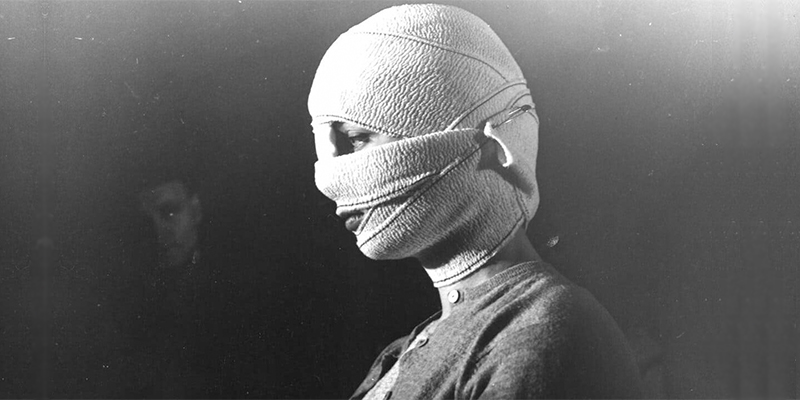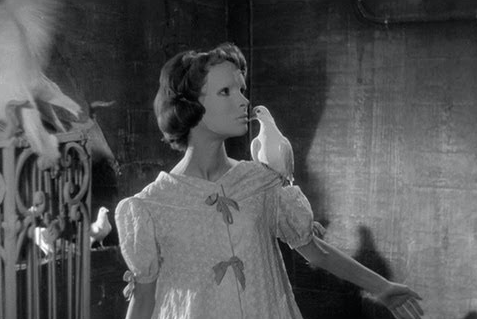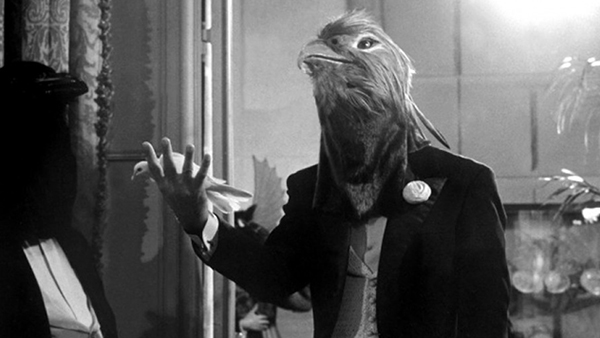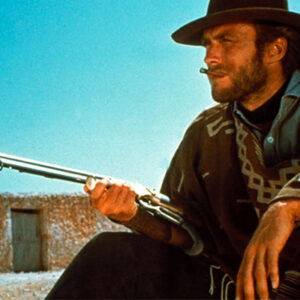Perhaps you, like me, were entranced by the recent news of the Louvre heist. Perhaps, of all the storytelling genres, you, like me, associate Paris (and France, writ-large) with heists and capers–stories of suave thieves and bumbling detectives, or suave detectives and bumbling thieves. But there is much more to French crime stories than this. Don’t let the glitzy, flashy, fancy heist story in the news distract you from the fact that the French also know their way around horror. And it’s no surprise, given that the capital city of Paris has an enormous network of skull-filled tunnels running beneath it. (And I don’t mean normal burial tunnels or ossuaries, either… but a whole underground world decorated with hundreds of thousands of human bones.)
So, and I say this lovingly… the French can be sickos! They are always artistic, but sometimes they too embrace the macabre. This is great news for us, on Halloween. Listed for you are five relentlessly atmospheric French horror movies from the 40s-60s, for your esoteric Halloweekend viewing pleasure.
Donc… amusez-vous! Bon weekend!
Eyes Without a Face, dir. Georges Franju (1950)
Georges Franjou’s Eyes Without a Face remains one of the scariest films I’ve ever seen. It’s so grim and tragic and a little mad. It’s about a plastic surgeon who kidnaps young women and surgically removes their faces, in attempts to graft new faces onto that of his own daughter, whose own face was badly disfigured in a car accident. She wears a face-like mask while awaiting a successful surgery, but she is growing increasingly repulsed by her father’s work. Kept in her father’s mansion, along with tons of German shepherds and doves he keeps to conduct animal testing, she feels like a prisoner there, herself. The surgeries are not successful, and too many young women have gone missing… it’s not long before a young woman is sent undercover there. But what she finds, no one might believe. The film’s representation of the doctor’s madness as stemming from his obsession with “correcting” his daughter’s disability and difference, as well as his highly misogynistic, almost-Oedipal obsession with female ideal beauty, keeps its disability politics in check. (Though it is worth stating that the film is a little too comfortable comparing its disfigured heroine to the animals in her father’s lab. While the film’s condemnation of animal testing is important, this slippage is unproductive.)
Diabolique, dir. Henri-Georges Clouzot (1955)
Based on the novel by Boileau-Narcejac (a pair of writers, actually), this midcentury horror-noir from one of my favorite directors, Henri-Georges Clouzot, is the perfect Halloween movie. Simone Signoret and Véra Clouzot play the mistress and wife (respectively) of a sadistic schoolmaster (Paul Meurisse) who plan the perfect murder to rid their lives of him. But when the murder is done and his body vanishes, the tables begin to turn. It’s excellent, absolutely chilling feature—the best film Hitchcock never made.
Le Corbeau, dir. Henri-Georges Clouzot (1942)
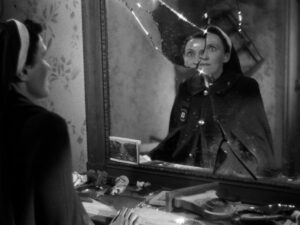
Henri-Georges Clouzot’s Le Corbeau is a masterpiece of anti-fascist storytelling. Filmed and released during the Nazi occupation of France, it’s a wildly allegorical horror-ish story about a town plagued by anonymous “poison pen” letters that turns in on itself. Get a load of this description, from Criterion: “Henri-Georges Clouzot’s Le Corbeau was attacked by the right-wing Vichy regime, the left-wing Resistance press, and the Catholic Church, and was banned after the liberation. But some—including Jean Cocteau and Jean-Paul Sartre—recognized the powerful subtext of Clouzot’s anti-informant, anti-Gestapo fable, and worked to rehabilitate his directorial reputation after the war. Le Corbeau brilliantly captures the paranoid pettiness and self-loathing that turn an occupied French town into a twentieth-century Salem.”
Judex, dir. Georges Franju (1963)
I love Judex, the elegant, complicated, and honestly super unnerving French caper directed by Georges Franju in 1963. It stars American magician Channing Pollock as Judex, a masked avenger-vigilante who blackmails a wealthy, unscrupulous banker but must sidestep these plans when the family’s former governess kidnaps the banker’s virtuous daughter Jacqueline in an attempt to ransom her. Also… masks, masks, masks! Franju loves masks.
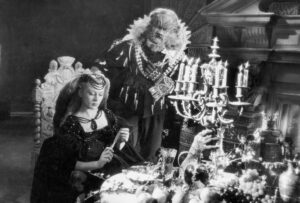
La Belle et La Bete, dir. Jean Cocteau (1946)
Is this classic Cocteau fairy tale SCARY? No. Is it SPOOKY? Yes? Is it, with all its opulent decorations involving moving human body parts, a suitable watch for this macabre holiday? Oui.

